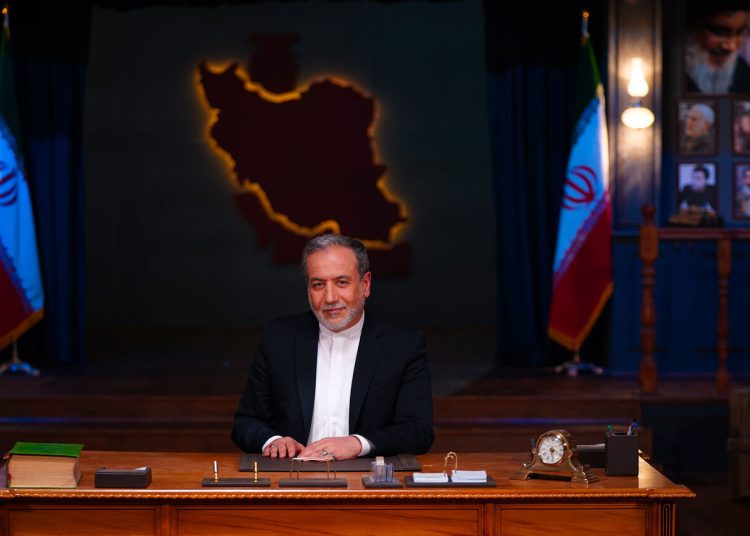By: Jafar Sherdoost
In a world increasingly fragmented by conflict and distrust, a gathering in Lisbon aims to rekindle a vision that once inspired hope for global harmony. Iranian Foreign Minister Abbas Araghchi is set to attend the Alliance of Civilizations forum in Portugal, accepting a joint invitation from the UN Secretary-General and the Portuguese Foreign Minister. This isn’t merely a diplomatic formality; it’s a symbolic gesture that echoes back to a time when dialogue among nations was seen as the pathway to peace.
Two decades ago, former Iranian President Mohammad Khatami proposed designating 2001 as the “Year of Dialogue Among Civilizations,” a bold counter-narrative to the prevailing “clash of civilizations” thesis. Khatami’s initiative emphasized the power of cultural dialogue to bridge divides and reduce global conflicts. It laid the groundwork for the Alliance of Civilizations, launched by Spain at the 59th UN General Assembly in September 2004. Now, as the initiative marks its twentieth anniversary, Iran’s participation signals a potential revival of that earnest quest for understanding.
The tenth UNAOC Global Forum convenes under the theme “United in Peace: Restoring Trust, Reshaping the Future.” Senior UN officials, representatives from international and regional organizations, and political as well as religious leaders will gather to address pressing global issues related to peace and security. In this milieu, Iran seeks not only to showcase its rich cultural heritage—which spans millennia—but also to assert its role in shaping international diplomatic processes.
It’s noteworthy that Iran’s engagement comes at a time when relations with the West are particularly strained. The European Union has recently imposed sanctions on Tehran, and the International Atomic Energy Agency’s Board of Governors adopted a resolution critical of Iran’s nuclear activities. Yet, despite efforts to pressure and isolate the country, Iranian top diplomat is stepping onto the global stage dedicated to ancient civilizations and focused on peace and security. The implicit message is clear: External obstructions will not deter Iran’s “active, inclusive, and impactful” diplomatic approach.
From a broader perspective, Iran’s commitment to international dialogue is deeply rooted in its civilizational heritage. As one of the world’s oldest continuous civilizations, Iran has a longstanding tradition of fostering intellectual and cultural exchanges. This historical experience informs its modern foreign policy, which emphasizes participation in international processes aimed at maintaining peace, understanding, and dialogue.
The Alliance of Civilizations initiative, supported by the United Nations, aspires to improve understanding and cooperative relations among nations and peoples across cultures and religions. Iran’s participation underscores its dedication to global security through cultural and diplomatic engagement.
Historically, Iran has engaged in peace treaties and diplomatic efforts to maintain regional stability. Its emphasis on cultural diplomacy has been a cornerstone in promoting peaceful coexistence. This approach is consistent with Peacebuilding Theory, which advocates for creating sustainable peace by addressing the root causes of conflict and fostering understanding. Iran’s historical and modern peace initiatives reflect this philosophy, emphasizing the pivotal role of culture and diplomacy in peace-building efforts.
But let’s not ignore the elephant in the room.
The forum in Portugal is being held against a backdrop of escalating tensions in the Middle East. The ongoing Israeli atrocities against Palestinian and Lebanese people has resulted in significant civilian casualties, raising international concern. These developments endanger regional and global peace and security, casting a shadow over international gatherings focused on dialogue and understanding.
Officials attending the Lisbon forum may very well raise these pressing issues. The urgent need to address the humanitarian crisis and seek pathways to de-escalation could become a focal point of discussions. Legal proceedings and rulings—such as the recent verdict by the International Criminal Court against Israeli Prime Minister Benjamin Netanyahu and former Defense Minister Yoav Gallant—could be of note. The international community is grappling with how to respond effectively to prevent further loss of life and promote lasting peace.
In this context, Iran’s voice could add a significant dimension to the dialogue. Given its geopolitical position and influence in the region, Iran’s perspectives on the conflicts could contribute to a more comprehensive understanding of the complexities involved.
The Lisbon forum is a chance to revive the ideals of mutual understanding and to reinforce the importance of dialogue in resolving conflicts. Yet, it’s also a test of whether nations can move beyond entrenched positions to find common ground for the sake of global peace and security.
As the world watches, one can’t help but reflect on the enduring relevance of Iran’s “Dialogue Among Civilizations.” In an era fraught with polarization and mistrust, returning to genuine dialogue may be our best hope for shaping a future grounded in shared humanity.
So, will the Alliance of Civilizations forum in Lisbon be a mere diplomatic footnote, or could it mark a point toward renewed trust and cooperation? The answer lies not just in the speeches delivered, but in the actions that follow. If history has taught us anything, it’s that dialogue is not a panacea, but it’s an essential starting point. And perhaps, in the shadow of ancient civilizations, we might find the wisdom to navigate our contemporary challenges.
In the end, the true measure of success for gatherings like the Lisbon forum is whether they can move us from dialogue to tangible outcomes—a shift from words to deeds. It’s a high bar, but one worth striving for. After all, our common humanity demands nothing less.
The views expressed in this article are those of the author and do not necessarily reflect the positions of Iran Nuances.





